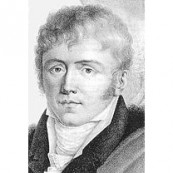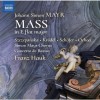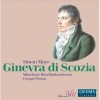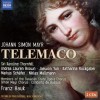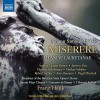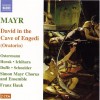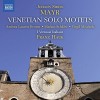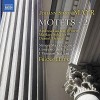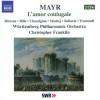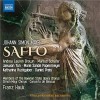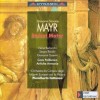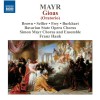Composers
Johann(es) Simon Mayr (also spelled Majer, Mayer, Maier), also known in Italian as Giovanni Simone Mayr or Simone Mayr (14 June 1763 – 2 December 1845) was a German composer.
He was born in Mendorf near Altmannstein, Landkreis Eichstätt, Bavaria, and studied theology at the University of Ingolstadt, continuing his studies in Italy from 1787. He was closely associated with the Bavarian Illuminati of Adam Weishaupt while a student in Ingolstadt, and the ideals of the French Enlightenment were a strong influence on his philosophy as a musician as corroborated by his famed Zibaldone or "Notebooks" compiled toward the end of his career.
Shortly thereafter, he took music lessons with Carlo Lenzi, and later with Ferdinando Bertoni. He moved to Bergamo in 1802 and was appointed maestro di cappella at the Cathedral of Bergamo, succeeding his old teacher Lenzi. He held the post until his death, and became a central figure in the city's musical life, organizing concerts and introducing Ludwig van Beethoven's music there. He was music teacher to Gaetano Donizetti. By the end of his life, he was blind. He died in Bergamo and is buried in the Basilica di Santa Maria Maggiore there, just in front of the tomb of his famous pupil.
Mayr's works, among which there are almost seventy operas, are rarely performed today.
Recently Added
| Country: | Italy |
| Period: | Romantique |
Biography
Johann(es) Simon Mayr (also spelled Majer, Mayer, Maier), also known in Italian as Giovanni Simone Mayr or Simone Mayr (14 June 1763 – 2 December 1845) was a German composer.
He was born in Mendorf near Altmannstein, Landkreis Eichstätt, Bavaria, and studied theology at the University of Ingolstadt, continuing his studies in Italy from 1787. He was closely associated with the Bavarian Illuminati of Adam Weishaupt while a student in Ingolstadt, and the ideals of the French Enlightenment were a strong influence on his philosophy as a musician as corroborated by his famed Zibaldone or "Notebooks" compiled toward the end of his career.
Shortly thereafter, he took music lessons with Carlo Lenzi, and later with Ferdinando Bertoni. He moved to Bergamo in 1802 and was appointed maestro di cappella at the Cathedral of Bergamo, succeeding his old teacher Lenzi. He held the post until his death, and became a central figure in the city's musical life, organizing concerts and introducing Ludwig van Beethoven's music there. He was music teacher to Gaetano Donizetti. By the end of his life, he was blind. He died in Bergamo and is buried in the Basilica di Santa Maria Maggiore there, just in front of the tomb of his famous pupil.
Mayr's works, among which there are almost seventy operas, are rarely performed today.
